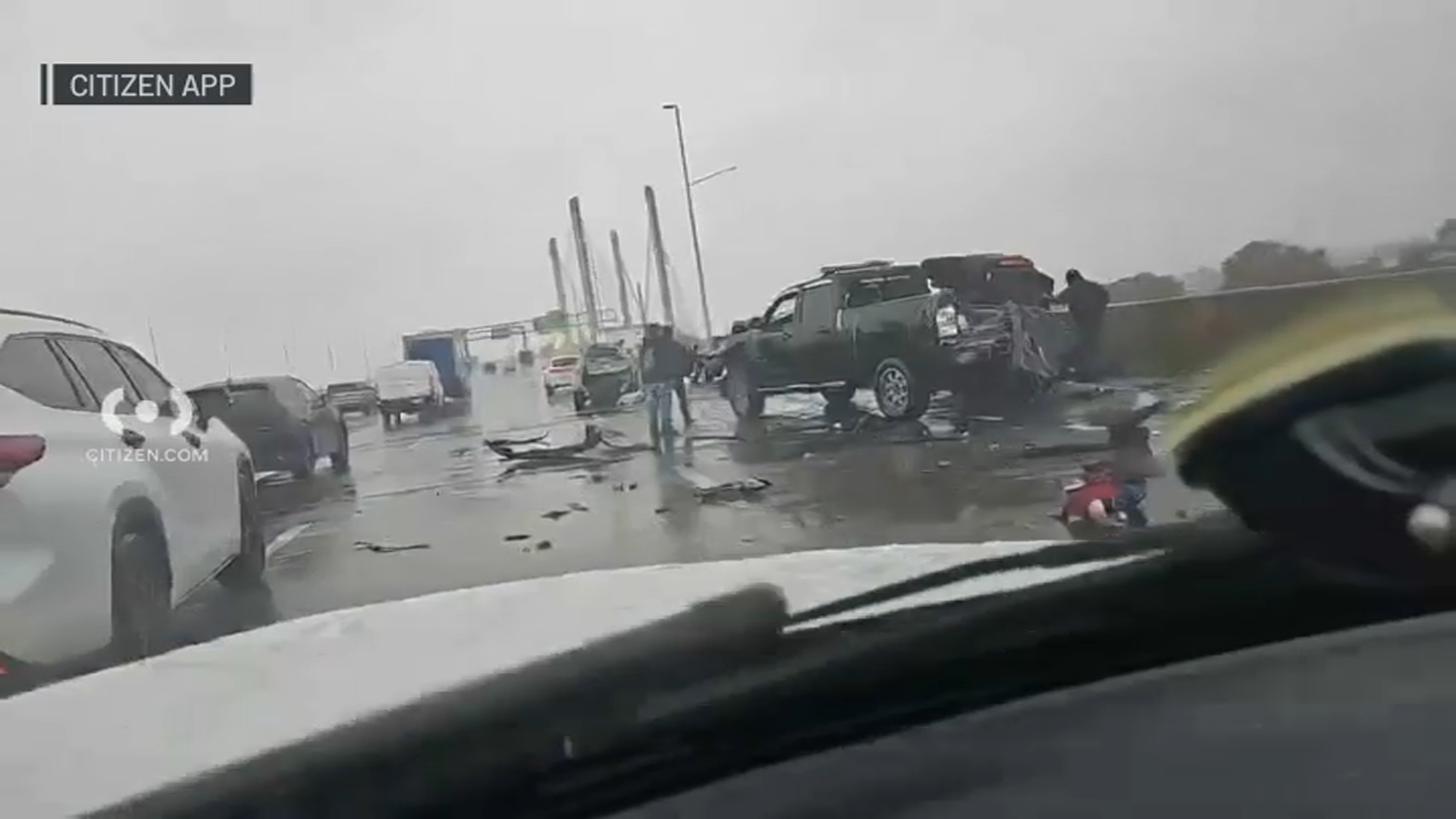New York City police plan to put body cameras on all 23,000 of its patrol officers by 2019, an ambitious effort that would dwarf all others across the country.
But the nation's largest police department is lagging behind other cities, with only limited experience with the cameras and zero currently on the streets.
Democratic Mayor Bill de Blasio says his body camera plan, announced during a proposed labor deal last month with the police officer's union, is crucial to restoring trust between officers and the communities they serve, "creating an atmosphere of transparency and accountability for the good of all."
A federal judge ordered the NYPD to try out body cameras as part of a 2013 ruling that found the department was wrongly targeting minorities with its stop and frisk tactic. The 2014 killing of Michael Brown, in Ferguson, Missouri, and other deaths at the hands of police around the U.S. led to increased demands that officers be issued wearable cameras to deter misconduct and document shootings and other clashes.
Since then, departments around the country began making progress. Philadelphia and Houston began outfitting a small percentage of officers. Chicago officials said it would finish its camera deployment of about 7,000 cameras earlier than expected, by the end of this year. San Francisco's police force, which had no cameras last fall, now has at least 250 in use.
And Baltimore, which erupted in riots following the 2015 death of Freddie Gray from a spinal injury suffered in police custody, have about 600 officers with cameras since a May rollout of an $11.6 million program.
In New York, the nation's largest police department has only experimented with the cameras on small scale, starting with a 54-camera pilot program that ended last March. The larger roll-out, part of the federal order, began in earnest at the end of 2014 following the end of court appeals. The aim is to have 1,000 cameras deployed to 20 precincts around the city this year. About 5,000 cameras would be deployed by 2018.
Local
The department agreed to a five-year $6.4 million contract with VIEVUE for 5,000 body cameras and a cloud-based storage system. The bid from the Seattle-based company came in well under other about 50 other companies jockeying for the bid, including Taser International, which has publicly complained and privately lobbied against its competitor.
Some city council members and pastors, concerned by the chatter, called on the police department to better vet the contract after reports that other departments had problems with the cameras. New York City's Department of Investigation is looking into the agreement. And late last week, the office of city comptroller Scott Stringer briefly delayed a decision to OK the contract, but signed off on it Thursday.
The police labor deal, if ratified by officers, would clear one major obstacle: The union would drop a lawsuit over the cameras. Still, several officers who spoke to The Associated Press said they have mixed feelings about having their every move recorded. Some believe it will vindicate their hard work. Others were offended and think the cameras mean they can't be trusted.
Civil rights advocates have also expressed concerns about how recordings of police interactions with citizens will be used.
Police Commissioner James O'Neill said last week that studies have shown the use of cameras affects the behavior of both police and the communities policed.
"In the long run it's going to have a very positive effect on how we go about our business," he said.
The department plans to deploy the cameras and use lessons learned on the ground to adjust the program as needed. Some of the largest challenges are storage and access - when are officers allowed to turn the camera on and off, and who gets access to that footage.
"There are strong privacy interests to be considered in what is recorded and whether body camera footage is publicly disclosed," said Lawrence Byrne, the department's deputy commissioner for legal matters.
But the cameras won't solve a police department's problems, they'll only help reveal them, said Frank Merenda, a former NYPD captain who is now an assistant professor of criminal justice at Marist College. He said there should be as much effort put toward new policing efforts as there is in implementing the cameras to officers across the nation.
"You don't want to just shine a light on these problems; you want to solve them, too."



